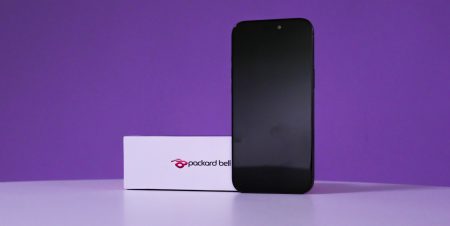If you were paying attention to streaming news over the weekend, you might have seen Multichoice calling for stronger regulation in the streaming space. Specifically, the broadcaster is looking to force its largest competitors to comply with BEE and South African tax laws.
What you’re not supposed to be paying attention to is how these calls for a ‘level playing field’ coincide with Multichoice shedding large numbers of subscribers. The broadcaster is expected to lose R3 billion over the next five years. This can be laid at Netflix and Disney+’s door — even though the latter just got here. But it’s only part of the story.
Not much of a Multichoice
Multichoice CEO Calvo Mawela, in perhaps a hypocritical move, has called for the imposition of roadblocks on the likes of Netflix and Disney+. Specifically, Mawela has called for his company’s competition to “…have to comply with laws like any company operating in SA”. That means complying with BEE, contributing to local taxes, and contributing to South Africa’s content creation landscape. Which Netflix, at least, already does, by the way.
On the face of it, the call seems reasonable. Why shouldn’t overseas companies doing business in South Africa contribute and conform? It’s good for the country, after all. Except that’s not why Multichoice wants its competition to jump through additional hoops. The paid-TV provider is trying to roadblock its way to a little breathing room.
Multichoice is running far behind the competition at present. Netflix launched in South Africa in 2016 and immediately started walloping the satellite provider. Showmax, the company’s own service, launched soon afterward but wasn’t ready to play with the big boys. It still isn’t. Even the company’s flagship product, TV broadcasts, has yet to jump on the 4K bandwagon. That’s a little less complicated than streaming 4K, and yet… customers are waiting.
Roadblock versus steamroller
Multichoice is in fear for its existence. Or, at the very least, in fear for the company’s balance sheet. Its recent actions reflect that pretty clearly. It cracked down on password sharing in an attempt to boost its bottom line. Now there’s talk that multiple streams might be coming back, in a limited manner. Disney+ has teamed up with the service, in a deal that does more for the Mouse Company than it does for DStv’s fortunes. Streaming of live sport is slowly but surely on its way. But it’s not enough to keep Multichoice competitive when there are bigger fish in the pond.
Read More: Why DStv’s rumoured Flex package won’t make a difference to Multichoice’s fortunes
And so Multichoice is calling for a ‘level playing field’. Greater regulation for Netflix, Amazon Prime Video, Disney+, in the shape of BEE, local employment, and local development roadblocks, has nothing to do with the South African landscape. It has everything to do with possibly slowing down the competition for long enough for Multichoice to catch up some ground. It’s also more or less doomed to failure, even if South Africa’s regulators give it everything it wants (eventually).
No sympathy
Any time you mention DStv on social media, the company is immediately battered. Multichoice isn’t a beloved brand. For decades, it was the only choice for an alternative to SABC. It has been around since 1994. For more than two decades, it was King Shit of Turd Mountain. Multichoice had all the money, all the advertising, and all of the leverage. It spent ages as a functional monopoly in South Africa. And it did its level best to retain that position. Because that’s how business works.
But then a larger, better organised, and better-funded entity hove into view, like an alien spaceship from Independence Day. Suddenly, regulations that Multichoice has to comply with following decades of running the show (and collecting all the money) without competition should apply to anyone who might knock the company off its precarious perch. Except that’s more or less already happened. Multichoice is gently rolling down the dungheap, scrabbling for a grip so it can claw its way back up.
That isn’t to say that international streaming giants should be contributing to the markets they’re making money from. But treating Multichoice’s calls for even-handed treatment as anything other than a gurgling noise as it circles a bowl of its own making doesn’t make any sense. The company exploited its position for years, squashing the SABC with a combination of better funding and more effective business practices. And, now that the same thing is happening to it, the company demands the same relief it did its level best to deny to its competition. Which is also just business. But we already know how the SABC and eTV’s attempts to reign in South Africa’s satellite broadcaster have worked out for them. Odds are that, without substantial new investment on Multichoice’s part, this call for ‘equal’ treatment will, at best, only marginally slow down the company’s current decline.




